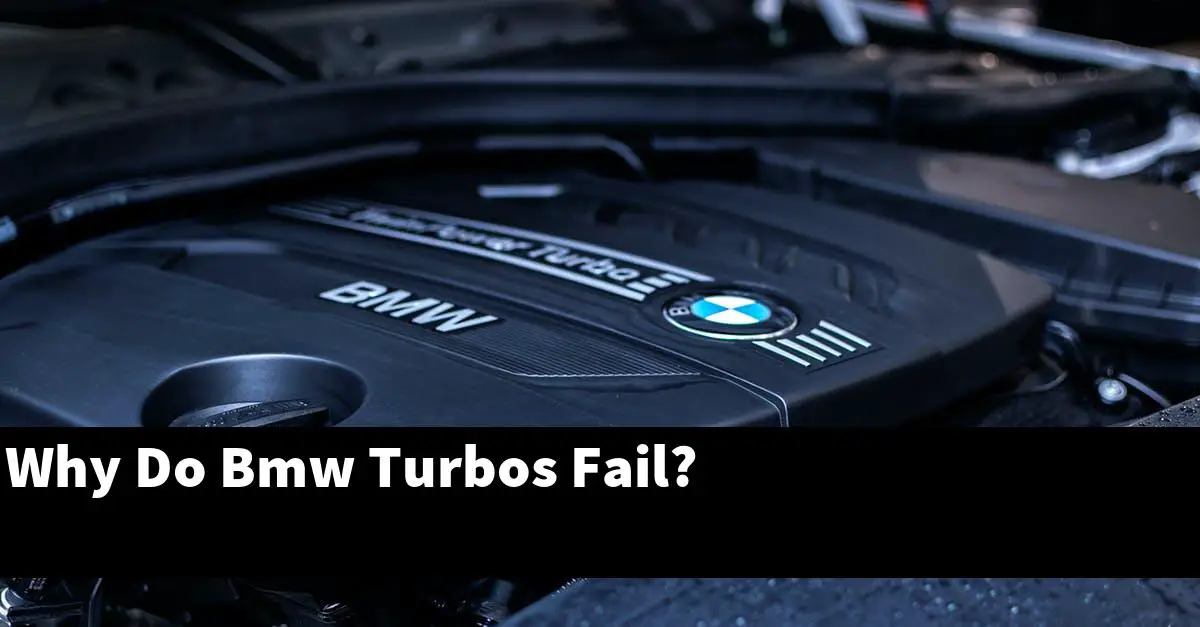BMW turbos fail for a variety of reasons. Some of the most common reasons include improper installation, poor maintenance, and excessive heat.
What are the main causes of turbo failure?
Turbochargers are devices that speed up the exhaust gas flow from a engine. They work by using a turbine to create a high-speed flow of air.
When the turbocharger is working properly, it creates a flow of air that is much faster than the airflow produced by the engine. This high-speed airflow helps to increase the power and speed of the engine.
There are a number of factors that can cause a turbocharger to fail. One of the most common causes is a worn turbine blade.
This can cause the turbocharger to lose its ability to create a high-speed airflow. Another common cause of turbo failure is a broken or cracked turbine housing.
This can allow debris to enter the engine and damage it. Finally, a failed turbocharger can also result from a failure of the compressor stage.
This can cause the engine to stop working altogether.
How to prevent turbo failure?
Turbo failures are usually caused by either a failed turbocharger or turbine. The most common cause of a failed turbocharger is a cracked turbine wheel.
A cracked turbine wheel allows air to escape and can lead to a turbo failure. To prevent turbo failure, it is important to inspect and replace damaged turbine wheels as soon as possible.
Additionally, it is important to maintain proper turbocharger and turbine oil levels to prevent air from entering the system.
How do i know if my BMW turbo is bad?
If you are experiencing lower power or reduced fuel economy with your BMW turbo, it is likely that your turbo is bad. A turbocharger is a vital component of a BMW engine and should be serviced and inspected regularly to ensure optimal performance.
If you notice any signs of wear or damage, it is recommended that you have your turbo replaced.
Are BMW turbos reliable?
BMW has been known for providing high-quality vehicles and engines. The company has been manufacturing engines with turbochargers for over forty years.
BMW turbochargers have been proven to be reliable and effective.
The turbocharger works by forcing air into the engine. This increased air pressure forces the combustion gases out of the engine, resulting in a boost in power and acceleration.
The turbocharger is a critical component in the engine, and it needs to be reliable in order to provide the power and acceleration that drivers expect.
The turbocharger on a BMW is designed to be reliable. The turbocharger is held in place by two bearings and a seal.
If the turbocharger fails, the bearings and seal can fail, and the turbocharger will no longer work. This is why the turbocharger is carefully tested before it is shipped to a customer.
In general, turbochargers on BMWs are reliable. However, there are always exceptions.
If there is an issue with the turbocharger, the engine manufacturer will usually fix the turbocharger without any problem.
What causes turbo failure?
Turbochargers are a type of air compressor that are used to increase the power and speed of an engine. They work by speeding up the air that is being pumped into the engine.
Turbochargers can fail due to many different reasons, but the most common is due to the turbocharger becoming damaged from overheating. This can cause the turbocharger to lose its ability to compress the air and force the engine to work at a lower RPM. If the turbocharger does not have enough power to push the engine to its full potential, the engine will not be able to reach its full potential and will not be able to perform as well as it could.
How long do BMW turbos last?
BMW turbochargers have a lifespan of around 80,000 to 100,000 miles, although this varies depending on how the car is driven and maintained. Over time, the turbine blades can become damaged and need to be replaced, which will result in a reduction in engine power and emissions.
Regular checkups and maintenance are essential to keep your BMW turbochargers in top condition.
What happens when a turbo fails on a diesel?
When a turbo fails on a diesel engine, the engine will usually stall and may not start. The engine may also have other issues, such as poor fuel economy or emissions.
Conclusion
There are a few reasons why BMW turbos may fail. One reason is due to the fact that BMWs have a history of turbocharger issues.
Another reason is that the turbochargers are designed to work at high speeds and temperatures, which can cause them to fail over time. Additionally, the turbochargers may not be able to properly cool down the engine, which can also lead to failure.


